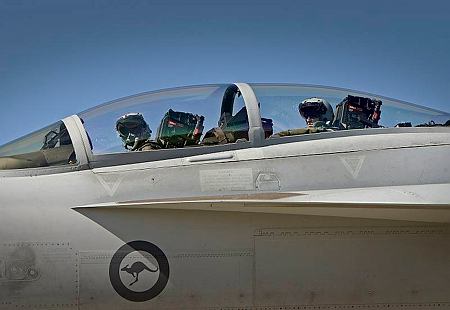War in Iraq and the need for a parliamentary debate
Cracks are already starting to show in the Government’s strange haste to commit Australian troops and aircraft to war in Iraq, and the equally confused messaging about how we are meant to respond to the raising of the domestic terror threat level.
Because of the institutionalised horror calling itself the ‘Islamic State’ that has taken root in Iraq and Syria, and because of Australia’s evident complicity in destabilising the region following the invasion in 2003, it’s not enough to stand back and leave it to the locals to fix the violent mess we helped create. We do have an obligation to help restore stability in Iraq; the question is, what constitutes the most effective and appropriate kind of help? On that score, the Australian Greens strongly disagree with the Abbott/Shorten unity ticket that a new war in Iraq will resolve the hideous aftermath of the last one.
It’s important that the Government immediately drop the façade that this is a strictly humanitarian endeavour, and call it what military commanders and Administration officials in the US are calling it: a war. Abbott’s ‘no boots on the ground’ commitment was jettisoned after less than a fortnight; we now have more than 600 pairs of boots arriving at al Minhad airbase in the UAE, headed for grounds unknown. Similarly, President Obama’s commitment that the 1600 inbound US troops would be there as ‘advisers’ now apparently extends to ‘close combat advising’ all the way to the front line.
Thousands of boots notwithstanding, the military leadership in the US is determined that this should remain a campaign fought largely from the air by drones and conventional bombers, with campaigns in Yemen and Somalia being cited, without irony, as successful case studies. The appalling civilian death toll resulting from those high-altitude interventions is rarely reported in the Western press, but communities on the ground understand the consequences well enough. Iraqi Sunnis probably also have a better recollection than most Australians of the murderous persecution they suffered under the Al Maliki Government that Australian troops helped install, and of the hundreds of thousands who died in the sectarian carnage we helped unleash in 2003.
In here probably lies one of the keys to answering the more forbidding question of what the hell to do about the viral spread of Islamic State out of its Syrian stronghold and into Iraq and the mass consciousness of the Western world. For all its righteous bluster, IS is loathed from one end of the Islamic world to the other—from Al Qaeda’s affiliates in Syria to Iran to Indonesia. Without support from Sunni tribal leaders and regional communities in north-western Iraq, the Islamic State’s footing in the region is perilously narrow. Actions to counter IS might include: our direct support for a more inclusive government in Iraq; cutting the flow of financing from the Gulf States; applying pressure on Turkey to close the border to flows of foreign fighters; active support to regional actors to starve Islamic State of weapons and funds; above all, pushing the UN to restart negotiations on ending the civil war in Syria.
Those will all take time: in the immediate future, Chelsea Manning’s thoughtful contribution from behind bars on ways to contain the further spread of IS surely poses a more durable endgame than a massive escalation of US and Australian air raids. Finally, if the Prime Minister is serious that this is primarily a humanitarian intervention, this is an excellent time to lift our refugee intake and contributions to UN agencies to get direct help to the vast numbers of people displaced and traumatised by the conflict in both countries.
The Prime Minister’s awkward rush to war plays into domestic politics and the ravening blood-lust howled from the front pages of the same Murdoch tabloids that demanded we invade Iraq in the first place, but it may be horribly counterproductive. Either, as the satirical website ‘The Onion’ proposed with a straight face, ‘Obama Vows To Split ISIS Into Dozens Of Extremist Splinter Groups’, or more forbiddingly, foreign air strikes will forge warring extremist groups into greater unity to focus on the common enemy: us. There are signs this is already occurring, with al-Qaeda in the Arabian Peninsula and al-Qaeda in the Islamic Maghreb issuing a rare joint demand to warring factions in the region to ‘Stop the infighting between you and stand as one rank against America’s campaign and that of its satanic alliance that lies in wait for all of us, to break us stick by stick.’
It’s surely no coincidence that despite more than three years of Australians transiting through Syria to fight in the horrific civil war there, ASIO was moved to raise the terror threat warning in Australia within weeks of the Government’s evident commitment to send us back to Iraq.
If, for once, Australia could strike a faintly-independent foreign policy stance and admit that foreign-flagged high explosives have had a dismal record in creating peace in the Middle East, we might stand a chance of actually providing meaningful help to people trapped in an unimaginable cycle of violence. Parliament, and the community at large, is the proper place for this debate, because if the Government has a solid case for committing us to another round of open-ended warfare in Iraq, it certainly hasn’t made it yet.
Scott Ludlam is an Australian Greens Senator for Western Australia and defence spokesperson for his party. Image courtesy of Department of Defence.
